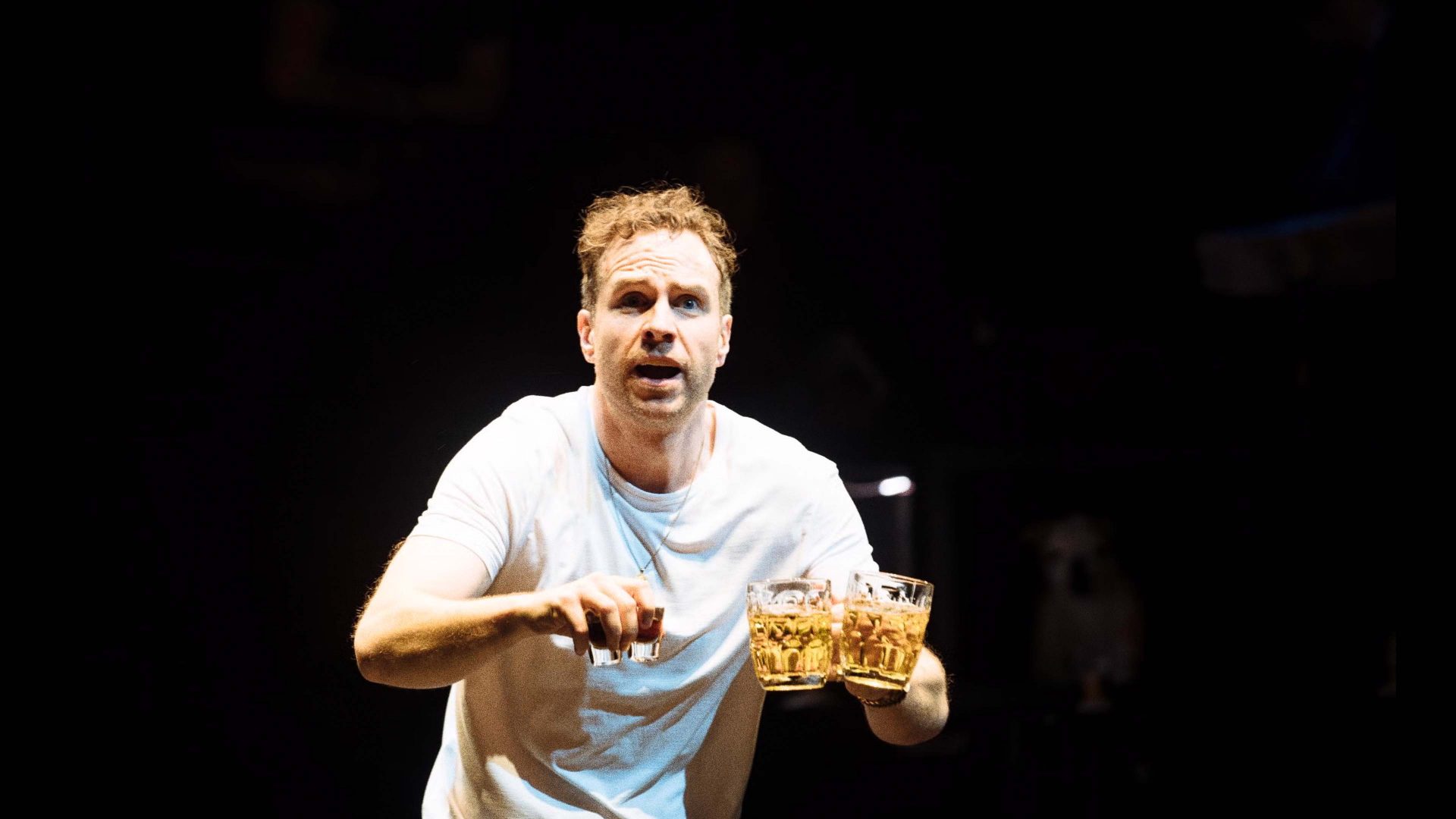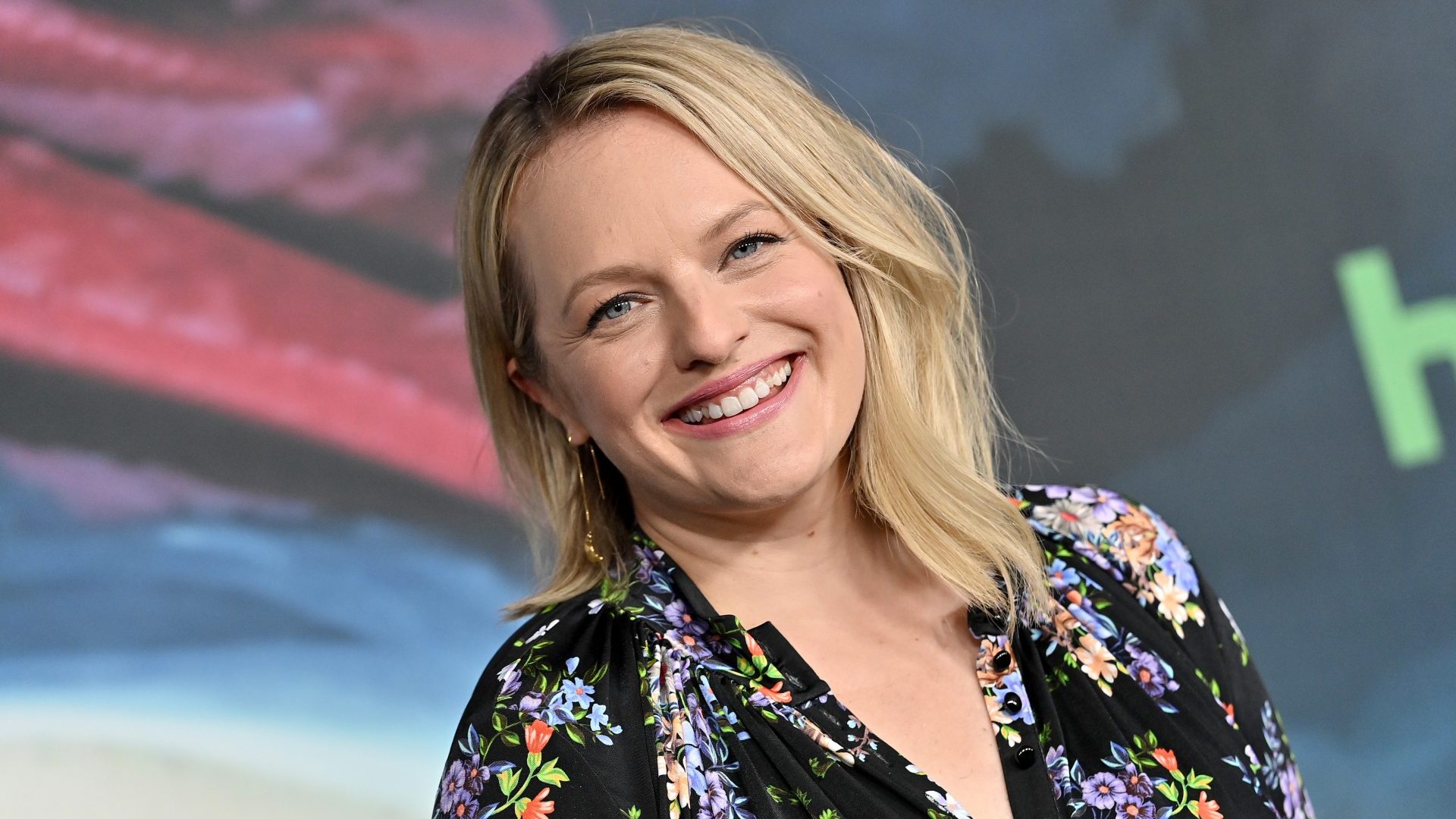It may not have been exactly written in the stars, but it was certainly up there in lights. I’m sitting having a coffee with playwright Roy Williams in the place that has become more than familiar to him during the last couple of decades, the National Theatre.
The topic is, inevitably, Death of England – a 2020 one-hander with Rafe Spall that eventually evolved into a trilogy of state-of-the-nation plays which formed one of the cultural highlights of 2024. Now it will be one of 2025’s highlights too, as it will be made available from early January through the National Theatre’s streaming service NT Live.
“It’s funny, we’ve had an interesting history with that play, with real-life events happening,” Williams says. “They just kept impacting every production we did.
“Like with Brexit, because what’s interesting is that the first preview was also the same day that we officially left the EU. So the light on the side of the NT, on the night that it happened, you saw those words – ‘Death of England’. You couldn’t beat that.”
The Death of England trilogy, which finished a highly successful run in London’s West End at the new Soho Place theatre in late September, is a collaboration between Roy and his regular creative partner Clint Dyer, a multi-talented man of the theatre who is currently deputy artistic director at the NT.
But it actually started out as a short film. “It was a commission for writers from the Guardian and the Royal Court,” recalls Roy. “They wanted themes taken from the Saturday section of the Guardian. And I chose the sport section,” he laughs, holding his hands up by way of surrender.
Roy’s a massive fan of athletic pursuit, a season ticket holder at QPR, and someone who frequently returns to the notion of sport being the perfect metaphor for life, in his work. Something that was there at the very start of his career and continues to make a mazy run through both the stories he tells and the themes he embraces in his extensive career.
He continues: “It was the summer of 2014; the World Cup had just finished. England stank the house out. And it was a time when it felt like the word ‘Brexit’ was beginning to take effect.
“The word… it just got louder and louder, and it felt like a funeral. It felt like I was going to a funeral for my own country. So the title was easy.
“And it was a simple premise about this guy who attends the funeral of his football-loving dad. And he’s off his face on God knows what. And he just launches into everyone. Attacking everything.
“Clint and I sat down and talked about it and we said: ‘it’s an explosion. Of thoughts and of passion.’”
That character was Michael, played by Spall at the National Theatre, and Thomas Coombes in the recent West End production. Part two, called Delroy, featured Paapa Essiedu in the titular role.
Delroy is a character that, as Roy says, he and Clint “take great pride in. He’s not what you expect him to be. And that was definitely mission number one. He’s not what you expect him to be.
“Like he says in the play: ‘I voted for Boris. Twice!’ And there’s a lot of me in Delroy. He says he shouldn’t be told what to do in his own country, and I agree with that. But I don’t believe in his politics.”
Roy was born in 1968 in Fulham and grew up in Notting Hill, the youngest of four kids being looked after single-handedly by his mum, a nurse. He became interested in writing in his late teens, when he was mentored by Barbados-born magazine editor and theatrical impresario Don Kinch.
As Roy points out, this was the break he needed. Because that wasn’t going to come from secondary school education.
“I remember when I was 15, my last year,” he says. “And the careers teacher asked us what we were going to do when we left school. From the minute we walked into that classroom – black kids, white kids, all from neighbouring council estates – it was assumed we weren’t going to stay on at sixth form. It was – ‘you’re ready to work on the buses. You, a bricklayer’. Not that there’s anything wrong with those jobs… they just make that assumption.’
Undeterred by that singular lack of imagination, Roy began to nurture his love of theatre and eventually made his way south of the Thames, to the London Borough of Bexley, where he completed his theatre-writing degree in 1990 at Rose Bruford College.
His first full-length play was The No Boys Cricket Club, which debuted at Stratford East in 1996. Since then, he has never looked back. He’s been extraordinarily prolific with his stage writing, while also expanding his repertoire with scripts for radio, TV and a feature film, Fast Girls, in 2012.
But it is perhaps his time spent within the expansive concrete walls where we are sitting that Roy holds most proud. “This place is kind of home,” he says. “I had to count the other day the number of plays I’ve done here now, and it’s five. They used to invite up-and-coming writers to do a two-month residency at the NT studio.
“And I think I was always on their radar. They give you a room and they pay you to do it. But there are no promises at all. But you know, this is the National Theatre – it’s the biggest, most important theatre in the country, I would say, not just for writers, but actors, directors, they all want to work here.
“Then it happened. It was Jack Bradley, who was the literary manager there, who said: ‘OK, I think we want to commission you to write a play for us. What do you want to do?’
“So I spoke to him about an incident that happened in Birmingham, when I was watching England v Germany in the Euros in 1996. And as I told Jack, it was a nice kind of gathering ’til these blokes came barging in, very loud, and changed the atmosphere completely. Very rowdy. All the xenophobia. Just being very aggressive. And I left, and you know, you just get used to that.
“But as a writer, I was thinking… I’ve never seen that kind of atmosphere recreated on stage. What if I could bottle that? Replicate it. Put it into a play? So I pitched that to him, and he said great. And that was Sing Yer Heart Out for the Lads (which premiered at the National in 2002; the story now set in a south-east London pub during the World Cup in 2000).
“And yes, the audience response was pretty uncomfortable. But I kind of got what I wanted. Yes, it was uncomfortable, and yes they didn’t say nice things. But I wanted to make an overriding point… not just about racism. I think people often get it wrong there. It’s about nationalism. And I do know they go hand in hand. I think it’s more about what we do to belong to something.
“Because when I’m writing, I’m not here to judge. I do have an opinion. I do have feelings about it, but I’m going to address the bigger picture here.”
Questions of nationalism and racism will again be explored in Williams’s new project, a film collaboration with Dyer that tells the story of the Three Degrees – not the American female vocal trio who became massive in Europe and favourites of then-Prince Charles, but footballers Cyrille Regis, Laurie Cunningham and Brendon Bateson.
Made in collaboration with each player’s family, it will tell the seminal sporting story of how these three black British talents famously starred together for West Bromwich Albion in the late 1970s, when terrace racism was at its dreadful peak. And it surely won’t escape Roy Williams’s attention that their manager and chief defender in those times was Ron Atkinson, who became a popular TV analyst before being sacked when a racist remark he made was broadcast accidentally.
It reminds me of something else Williams told me when we met.
“Going back to Michael in Death of England, I know so many of the Michaels and the dads of this world. And what I find fascinating about them is that they’re complicated,” he said.
“One mate of mine, Barry, his dad was known around the area. A bit of a hard arse. Scary bloke! And I heard him say things about black people. But he welcomes me into his house. His wife gets me lunch.
“I’m not excusing it… but part of me finds it fascinating. The contradiction. Is there a war going on inside their heads?”



